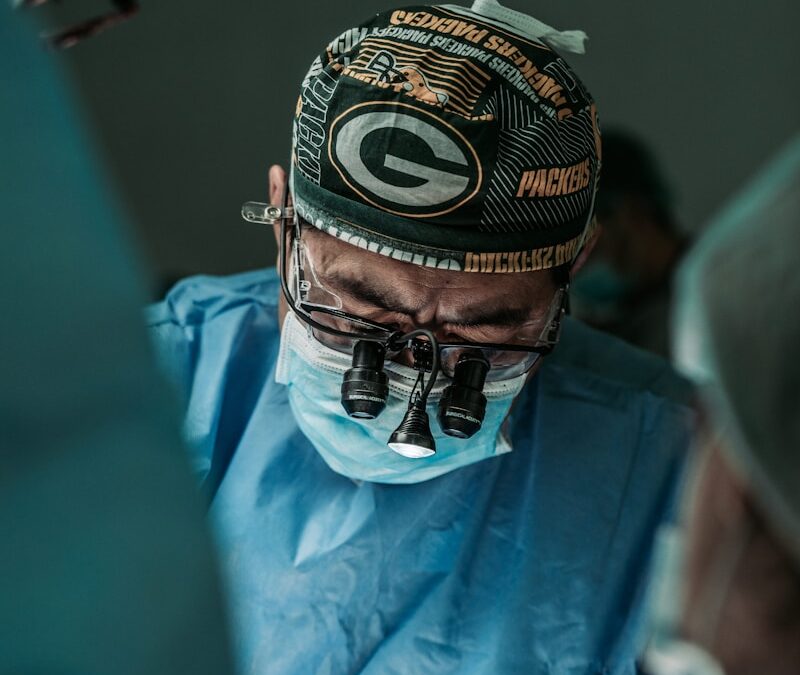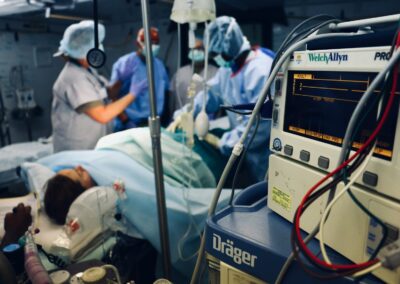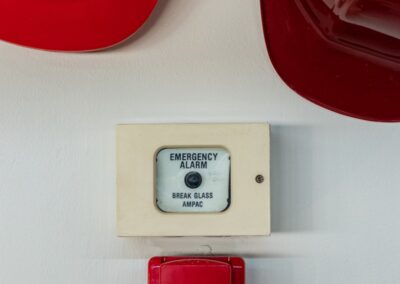The Future of Surgical Training: Digital Twins for Surgeon Training
Transforming Surgical Education with Realistic Simulations
Digital Twins for Surgeon Training represent a significant advancement in medical education, offering realistic simulations that enhance the training and certification process for surgeons. By creating precise virtual replicas of human anatomy and surgical procedures, digital twins provide a dynamic platform for practicing complex surgeries in a risk-free environment. In regions like Saudi Arabia and the UAE, where healthcare standards are continuously rising, integrating digital twins into surgical training programs can lead to improved surgical outcomes and higher levels of competency among medical professionals. This technology allows surgeons to hone their skills, refine techniques, and gain confidence before performing actual surgeries, thereby reducing the risk of complications and improving patient safety.
Applications in Saudi Arabia and the UAE
In Saudi Arabia, digital twins are being increasingly adopted in medical schools and hospitals to enhance the training of future surgeons. Institutions in Riyadh are leveraging this technology to create detailed, interactive simulations of various surgical procedures, from routine operations to complex, high-risk surgeries. Similarly, in Dubai, digital twins are being used to facilitate continuous professional development for practicing surgeons. These simulations provide an immersive learning experience, enabling surgeons to practice in a controlled, virtual environment that closely mimics real-life scenarios. By using digital twins, healthcare institutions in these regions can ensure that their surgeons are well-prepared, competent, and confident in their abilities, leading to better patient outcomes and overall healthcare quality.
Improving Certification and Competency with Digital Twins
One of the most significant benefits of digital twins in surgical training is their ability to support certification and competency assessments. Traditional methods of surgical training often involve limited hands-on experience, which can be insufficient for mastering complex procedures. Digital twins provide a comprehensive and scalable solution to this challenge. By allowing surgeons to perform multiple simulated surgeries, digital twins enable continuous practice and assessment, ensuring that surgeons achieve the necessary proficiency before performing real surgeries. In Riyadh and Dubai, medical boards and certification bodies can use digital twins to evaluate surgical skills more effectively, providing objective and standardized assessments. This approach not only enhances the reliability of certification processes but also ensures that only the most qualified surgeons are certified to practice.
Integrating Digital Twins with Modern Technologies
Synergies with Artificial Intelligence and Blockchain
The integration of digital twins with artificial intelligence (AI) and blockchain technology can further enhance their effectiveness in surgical training. AI can analyze performance data from digital twin simulations to provide personalized feedback and identify areas for improvement. For example, AI algorithms can detect subtle errors in surgical techniques and suggest corrective actions, helping surgeons to refine their skills. Blockchain technology can secure the data generated from these simulations, ensuring that training records are immutable and transparent. This is particularly important in the context of certification, where the integrity and authenticity of performance data are crucial. In cities like Riyadh and Dubai, where technological innovation is a priority, combining digital twins with AI and blockchain can create a robust and reliable training ecosystem for surgeons.
The Role of the Metaverse in Surgical Training
The Metaverse offers new possibilities for enhancing surgical training with digital twins. By integrating digital twins with the Metaverse, surgeons can participate in immersive, collaborative training sessions in a virtual environment. This approach enables surgeons to practice complex procedures with peers and mentors from around the world, fostering a collaborative learning experience. In Riyadh and Dubai, medical institutions can host virtual surgical workshops and conferences in the Metaverse, providing surgeons with access to a global network of expertise and resources. This integration not only enhances the quality of surgical training but also promotes continuous learning and professional development in a highly interactive and engaging manner.
Future Prospects and Conclusion
The future of surgical training is poised to be transformed by the integration of digital twins, AI, blockchain, and the Metaverse. These technologies offer a comprehensive and scalable solution for enhancing the training and certification of surgeons, ensuring that they are well-prepared to meet the challenges of modern healthcare. In regions like Saudi Arabia and the UAE, where there is a strong focus on innovation and excellence in healthcare, the adoption of digital twins in surgical training can lead to significant improvements in surgical outcomes and patient safety. By embracing these advancements, healthcare institutions can provide surgeons with the tools they need to excel, ultimately leading to better healthcare quality and patient care.
#DigitalTwins #SurgeonTraining #RealisticSimulations #SaudiArabia #UAE #Riyadh #Dubai #ArtificialIntelligence #Blockchain #Metaverse #ExecutiveCoaching #GenerativeAI #ModernTechnology #BusinessSuccess #LeadershipSkills #ProjectManagement























